Debt Settlement: The Path to Financial Freedom Explained

In a world where financial stability often feels elusive, debt settlement can emerge as a viable strategy for those drowning in debt. Understanding the nuances of this process is essential for anyone contemplating this path. This article will take you through the basics of debt settlement, its advantages and disadvantages, and how it compares to bankruptcy. We will also provide some practical steps to consider before you decide to settle your debts.
Debt settlement involves negotiating with creditors to reduce the total amount owed, thereby making it easier for debtors to pay off their financial obligations. This process can significantly relieve immediate financial pressure and potentially help individuals start fresh. However, it's crucial to approach debt settlement with a comprehensive understanding of its implications and the commitment necessary to navigate this potentially complex process effectively.
Many people hear about debt settlement from friends, family, or financial advisors, but misconceptions can abound. It's essential to clarify these misunderstandings and assess individual circumstances to determine if this path is suitable. Nobody wants to make a wrong financial decision, especially when the stakes are so high. In this article, we'll delve deeper into what debt settlement entails, how it works, and what you need to be aware of before proceeding.
Understanding Debt Settlement
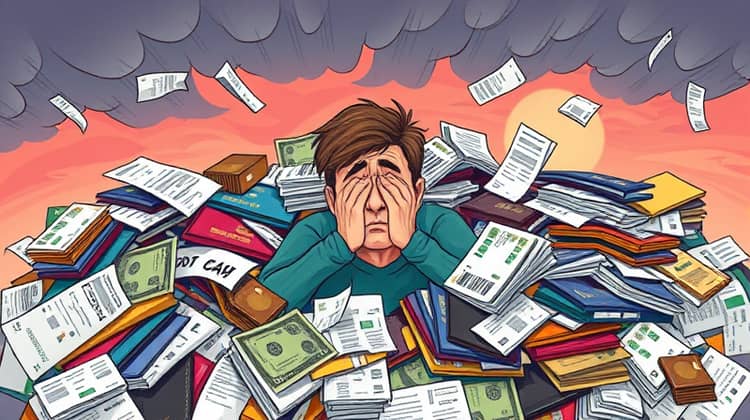
To grasp the concept of debt settlement, it is vital to recognize what debt actually represents. In basic terms, debt is the amount of money that one party owes to another. It can accumulate from various sources such as credit cards, personal loans, and medical bills. Over time, if not managed properly, these debts can spiral out of control, leading to financial strain and stress for the debtor.
Debt settlement is the process of negotiating with creditors to reduce the amount owed. It is often perceived as a lifeline for individuals who have difficulty keeping up with their payments and find themselves buried under a mountain of debt. The potential for some relief from financial burdens is appealing; however, it requires careful consideration before taking the plunge.
Many individuals wonder who should consider debt settlement. It is typically advisable for those with considerable unsecured debts, such as credit card debt, who have fallen behind on payments and may be facing aggressive collections actions. However, debtors should thoroughly evaluate their entire financial situation before proceeding with this option.
The Debt Settlement Process

The debt settlement process usually begins with an individual or a representative from a settlement company gathering information about the debtor's financial situation, including total debts, income, and expenses. This overview allows for a negotiation strategy tailored to the debtor's unique circumstances.
After assessing the situation, the negotiation process can commence. The debtor or the representative will contact creditors and propose reduced settlements, often offering a lump sum payment for less than the total owed. Creditors may be motivated to accept this compromise in an effort to recover some of their losses, especially if bankruptcy poses a threat.
- Evaluate your debt load: Calculate how much you owe to each creditor and categorize your debts (secured vs. unsecured).
- Assess your ability to make payments: Determine what you can afford to pay each month based on your financial situation.
- Find a reputable debt settlement company, or choose to negotiate with creditors yourself, thoroughly researching the potential implications of both options.
- Negotiate with creditors: Propose a settlement amount that you can afford, aiming for a lump-sum payment to resolve your debt.
Once your proposal is submitted, creditors may take weeks to respond, and they may counter your offer. Patience and persistence are crucial during this phase. After successful negotiations, ensure that agreements are documented in writing to protect your interests and clarify the terms of the settlement.
Pros of Debt Settlement
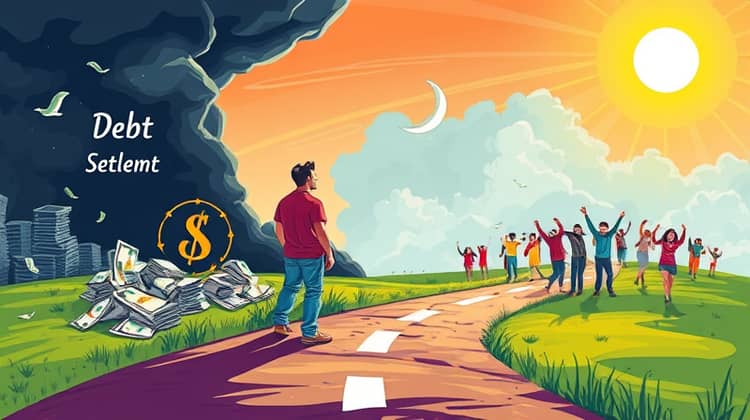
Debt settlement offers several advantages that can make it an appealing option for those struggling with overwhelming debt. For starters, it can provide a clear pathway towards becoming debt-free, allowing individuals to pay a lump sum that is significantly less than the total amount owed, which can make a daunting situation manageable.
Moreover, debt settlement can halt creditor harassment, as negotiations may lead to a standstill in collection efforts while the process is ongoing. Many find relief in no longer worrying about constant phone calls or letters demanding payment.
- Reduced total debt: Many individuals find they can settle debts for 40% to 60% less than what they truly owe.
- Faster resolution: Typically, settlements can be completed in a few months to a couple of years, allowing for faster movement toward a debt-free life.
- Less impact on credit compared to bankruptcy: While settling debt does negatively affect your credit score, this impact is often less severe and more short-lived than that of bankruptcy.
- Opportunity for financial education: During the debt settlement process, individuals gain insights into managing finances better in the future.
In short, debt settlement presents a practical alternative for those looking to navigate their way out of financial difficulties while offering options to regain control over their finances.
Cons of Debt Settlement
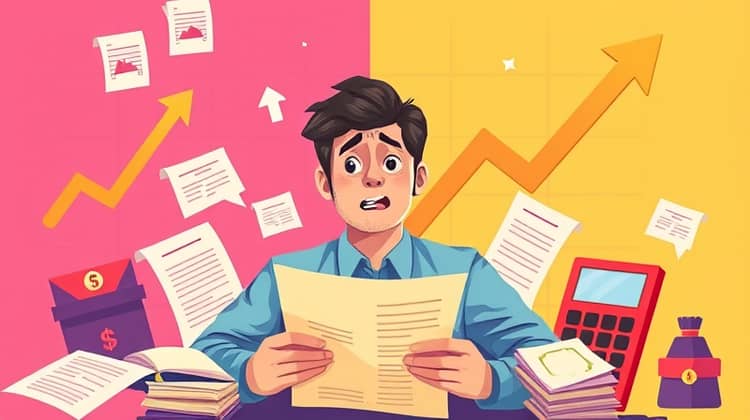
Despite its benefits, debt settlement comes with its own set of risks and drawbacks. One major downside is the impact on your credit score. Although the score may initially be better than a bankruptcy's impact, a settled account will still reflect negatively on your credit report, potentially making it more challenging to secure loans or credit afterward.
Another concern is the potential for high fees if you enlist the help of debt settlement companies. These fees can reduce the overall savings gained from settling your debts, making it imperative to analyze whether the cost of these services outweighs their potential benefits.
- Potential for a negative impact on credit report: Accounts settled for less will appear as negative, affecting your creditworthiness.
- High fees: Companies often charge significant fees, which can decrease the overall savings achieved by settling debts.
- Not all debts are eligible for settlement: Secured debts or certain lease obligations may not qualify for this process, limiting options for some individuals.
- Tax implications: The IRS can consider forgiven debt as taxable income, which could result in a tax bill for the debtor.
With these challenges in mind, individuals must weigh the pros and cons carefully and consider their specific circumstances before deciding on debt settlement as a solution.
Debt Settlement vs. Bankruptcy
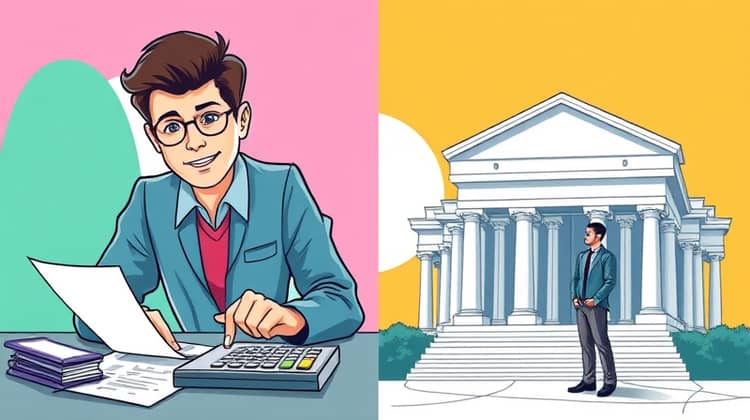
Debt settlement and bankruptcy are two alternatives when dealing with overwhelming debt, but they differ significantly in approach and consequences. Bankruptcy offers a legal means to discharge debts, while debt settlement involves negotiating with creditors to lower what you owe. Bankruptcy may provide immediate relief yet generally leads to a more severe and longer-lasting impact on credit history.
Choosing between these two options is often a challenging decision, and one should consider various factors, including the nature of existing debts, personal financial situations, and future financial goals.
- Debt settlement is a method intended to reduce total debt while still giving some creditors the chance to recoup part of their losses.
- In bankruptcy, most debts can be wiped clean, but this can come with serious long-term repercussions for credit scores and future borrowing.
- Debt settlement can offer a quicker recovery route compared to the years it may take to rebuild credit post-bankruptcy.
Ultimately, the decision should be based on a holistic understanding of your financial landscape and the repercussions of each option, ensuring that you make an informed choice that aligns with your life goals.
Is Debt Settlement Right for You?
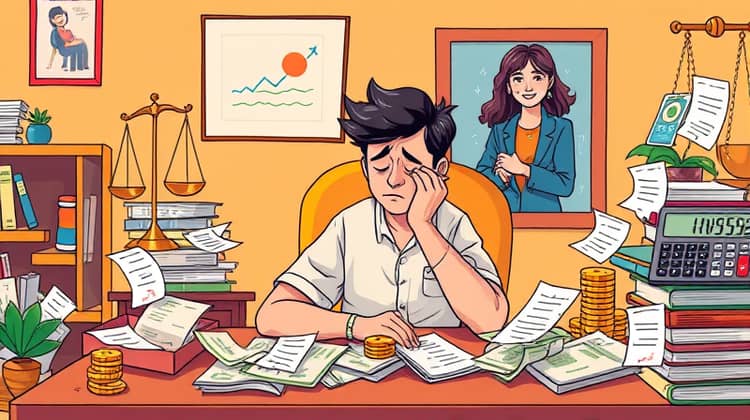
Determining whether debt settlement is the right choice for you involves assessing your financial situation realistically. Individuals must consider the level of their debt, their income, and their overall financial stability before making a commitment to settle debts. If you are facing financial difficulty, it may be time to seek guidance from a qualified financial advisor to explore available options.
Assessing your comfort level with negotiation is also critical, as the success of debt settlement often hinges on effective communication with creditors. If you feel overwhelmed or uncertain about negotiating terms, you may wish to employ a professional to act on your behalf.
Lastly, consider the emotional toll that debt can take on your life. If dealing with the stress of financial instability is affecting your daily functioning or personal relationships, acknowledging that a solution is required will pave the way for making the best possible decision moving forward.
Steps to Take Before Settling Your Debt

Before diving into the debt settlement process, it is wise to take stock of your overall financial health to ensure that a settlement is the best course of action. Understanding your full financial picture will allow you to make informed decisions as you move forward.
- Collect all your financial documents: Include bills, account statements, and budget information, which will be crucial for planning and negotiations.
- Calculate total unsecured debt: Assess how much you owe across various creditors to have a clear overview of your situation.
- Research reputable debt settlement companies: If choosing to work with a company, investigate their credentials to avoid scams and ensure good service.
- Develop a plan for repayment or settlement: Prepare for how you will handle payments post-settlement, and ensure you have a plan in place.
Navigating the landscape of debt settlement requires careful consideration and preparation. By comprehensively assessing your situation and planning, you can take the necessary steps toward financial freedom with confidence.






